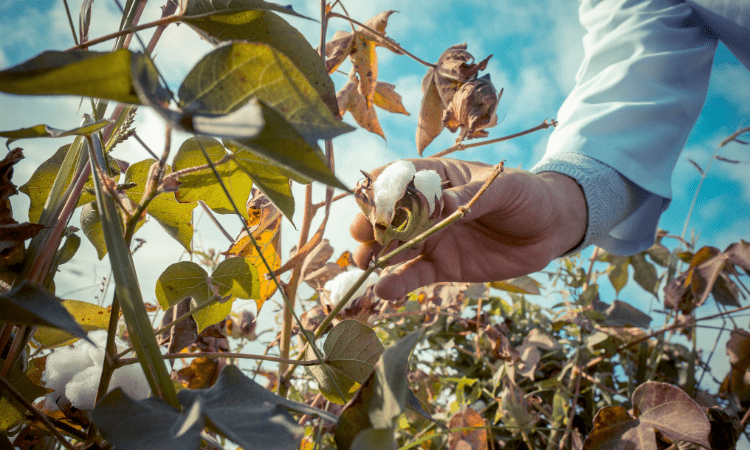Sustainable Cotton Production: Carbon Footprint Reduction
What is the Importance of Sustainable Cotton Production?

Cotton is one of the most widespread agricultural crops worldwide and is used as a basic raw material for the textile industry. However, conventional cotton production poses serious sustainability challenges due to high water consumption, intensive chemical use and environmental impacts. Sustainable cotton production aims to solve these problems by reducing the carbon footprint and using water resources more efficiently.
Environmental Impacts of Cotton Production
- Carbon Footprint:
- The energy used during cotton production and processing results in fossil fuel consumption and high carbon emissions.
- Chemical fertilizers and pesticides used in agricultural activities increase the carbon intensity of production.
- Water Consumption:
- Cotton is a highly water-dependent plant. Approximately 10,000 liters of water is used to produce one kilogram of cotton.
- Cotton production, especially in arid regions, depletes groundwater resources and negatively affects the ecosystem.
- Pressures on Soil and Ecosystem:
- Chemical fertilizers and pesticides reduce soil quality and damage biodiversity.
- Monoculture agriculture leads to soil exhaustion and erosion.
Strategies to Reduce Carbon Footprint
1. Use of Renewable Energy
- Using solar and wind energy instead of fossil fuels in cotton production and processing can greatly reduce carbon emissions.
2. Low Carbon Agriculture Practices
- Reducing the use of chemical fertilizers and switching to organic fertilizers reduces greenhouse gas emissions.
- Methods that minimize tillage, such asdirect seeding techniques, increase carbon storage in the soil.
3. Local Production and Supply Chain Management
- Promoting local cotton production reduces carbon emissions during transportation.
- Circular economy practices ensure that waste is recycled during the production process.
Sustainable Cotton Production Certificates
1. Better Cotton Initiative (BCI): A standard that promotes environmentally friendly cotton production. Reduced water use and chemical consumption are targeted.
2. Organic Cotton Certification: A certificate issued for cotton produced without the use of chemical fertilizers and pesticides. It guarantees environmentally friendly production.
3. Fair Trade Certificate: Guarantees fair wages and working conditions during the production process and supports environmental sustainability.
Nano-lab Laboratories Group continues to provide services within the scope of GMO Analysis in Cotton.
Contact us for more information.
You can follow us on LinkedIn for up-to-date news and posts about our services.
Follow our Instagram account to be informed about our latest blog posts.

